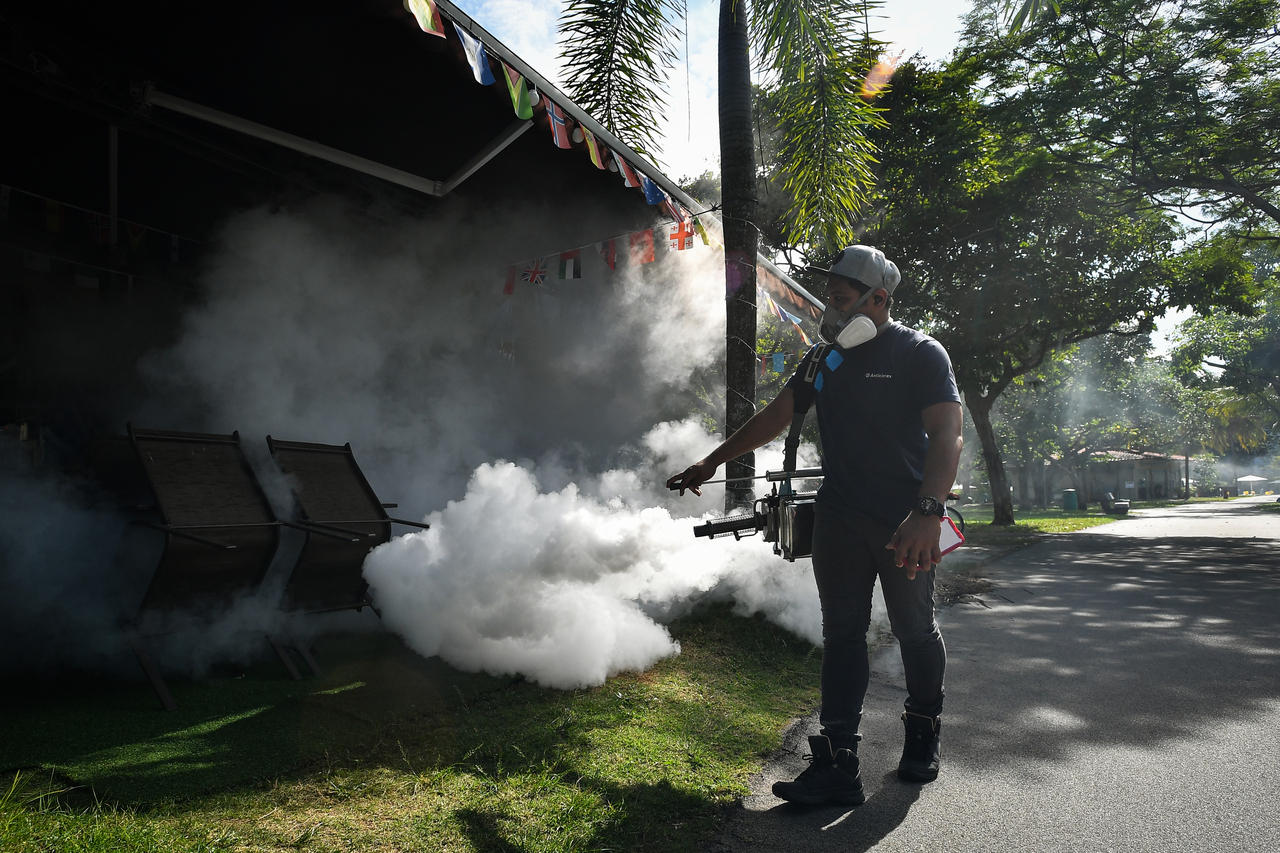Dengue could surge in coming months, NEA warns as cases rose to 183 last week
Sign up now: Get ST's newsletters delivered to your inbox

The uptick in dengue cases continued for a fifth week with 183 cases reported last week.
ST PHOTO: LIM YAOHUI
SINGAPORE - The uptick in dengue cases continued for a fifth week, with 183 cases reported last week.
The National Environment Agency (NEA) warned on Tuesday (Jan 25) that cases could surge in the coming months if the current high population of dengue-carrying mosquitoes remains unchecked.
This is because the previously uncommon dengue virus serotype 3 (DenV-3) - which people here have less immunity against - has been circulating, said NEA.
Also, many people are still working from home, and are thus susceptible to bites from the day-biting Aedes aegypti mosquito, whose numbers increased by about 17 per cent from August to December last year, the agency added.
There were 147 dengue cases reported between Jan 9 and 15, and 105 the week before that.
The NEA said it expects dengue case numbers this year to exceed last year's 5,258 reported cases.
There are currently 24 active dengue clusters, of which four are large, with 10 or more cases each.
DenV-3 has been detected in two of the large dengue clusters - in Cleantech Loop in Jurong and in Jalan Bangau, which is near Yio Chu Kang Road.
The rise of DenV-3 in 2020 likely contributed to the worst outbreak Singapore has seen, with cases soaring to 35,315 from 15,998 the year before.
Over the three decades before 2020, all dengue outbreaks here were caused by either DenV-1, or since 2016, by DenV-2.
"Prior to 2020, DenV-3 had not been the dominant virus serotype during any major dengue outbreak in Singapore over the past three decades. Thus, population immunity against DenV-3 is low, and more people are susceptible to infection with this serotype," said NEA.
While the two-year outbreak created cross-protective immunity in the community, it is short-lived and likely to be waning, leading to weekly dengue cases rising since the end of last year, the agency said.
Cross-protective immunity to dengue virus serotypes is the protection against one dengue virus serotype due to pre-existing immunity developed from past exposure to a different serotype. Studies show that it generally lasts between a few months and a few years.
"Concerted community action and sustained (mosquito) control efforts are urgently required, to prevent escalation of dengue case numbers to outbreak levels," NEA said.
The Aedes aegypti mosquito population remains high in areas such as Ang Mo Kio Avenue 3, Hougang Avenue 7, Marsiling Drive/ Marsiling Road, and Champions Way/ Woodlands Avenue 1.
NEA conducted about 631,000 inspections last year and uncovered about 18,500 mosquito breeding habitats.
It took 8,700 enforcement actions against owners of premises for mosquito breeding. About 480 summonses and 43 stop-work orders were issued to construction sites, and 54 contractors were charged in court for repeat offences.
NEA said that in anticipation of homes and other premises being decorated with ornamental plants for the upcoming Chinese New Year season, it has inspected all plant nurseries.
It also distributed dengue prevention packages, which included posters to remind plant sellers and buyers to maintain vigilance and prevent mosquito breeding.
"Those decorating their homes and premises with ornamental plants are urged to take care of these plants and prevent them from becoming mosquito breeding habitats, by making sure that water does not accumulate in the flowerpot plates or on top of the hardened soil," added NEA.


